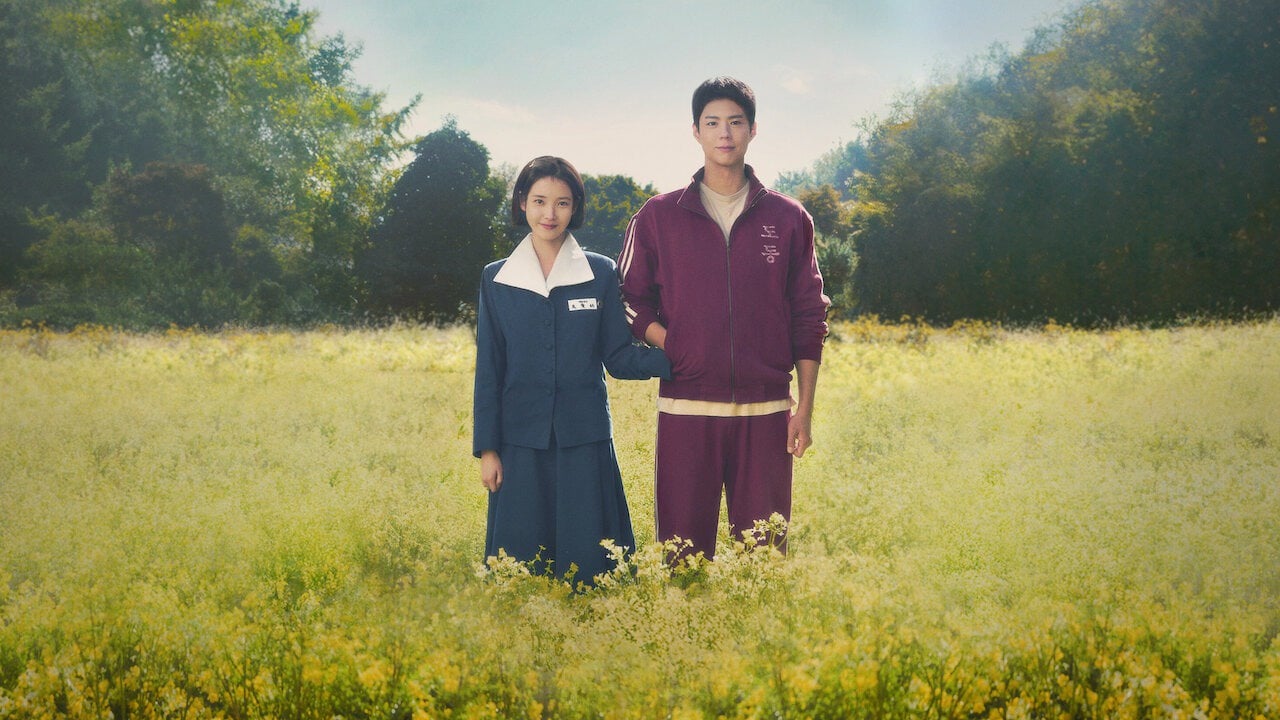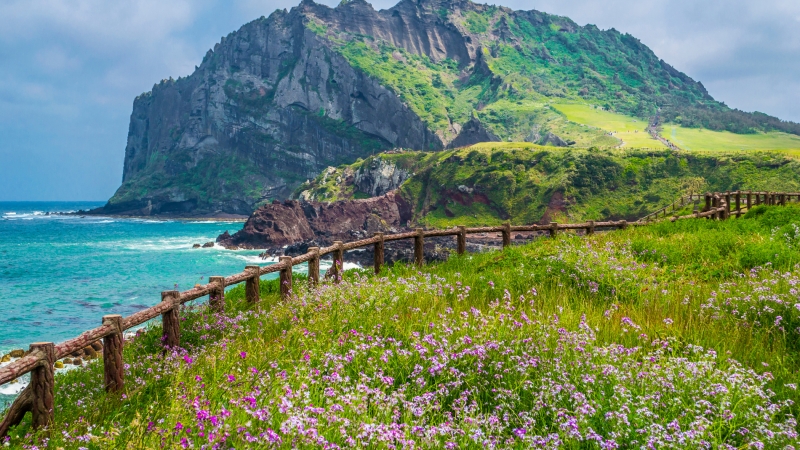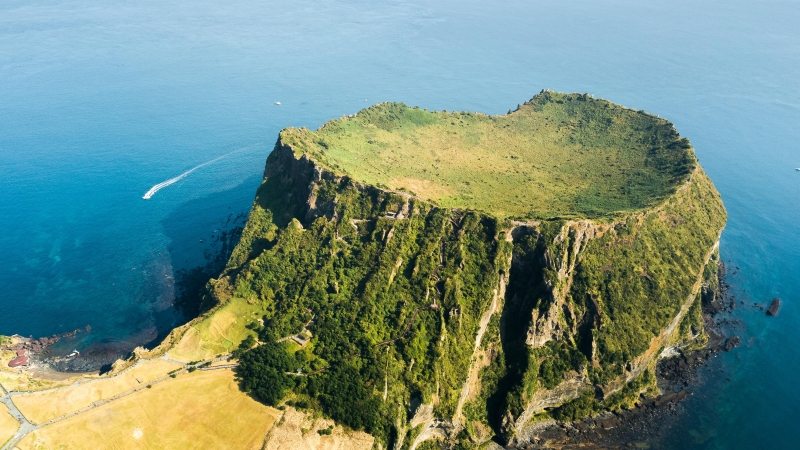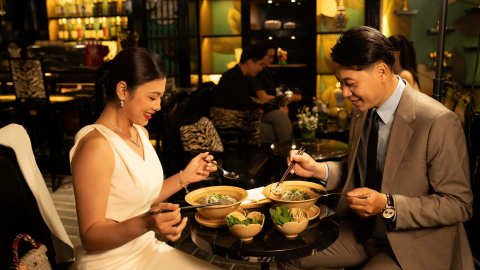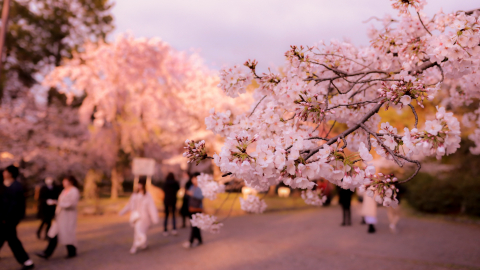The South Korean drama "When Life Gives You Tangerines," which officially premiered on March 7th, quickly became a sensation on the small screen, attracting widespread attention from viewers.
Furthermore, the film's stunning setting, filmed on the idyllic Jeju Island, has also received a shower of praise from viewers. The romantic and poetic scenes, recreating the pristine and tranquil beauty of Jeju, have contributed to the film's special appeal.
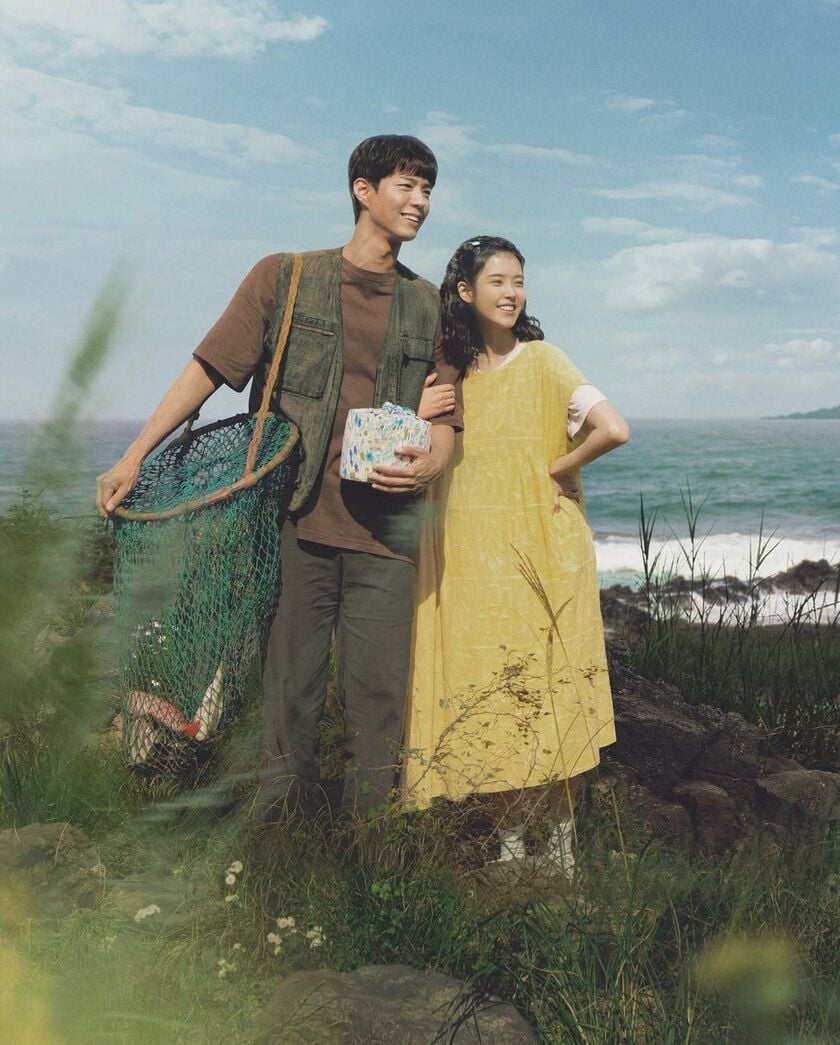
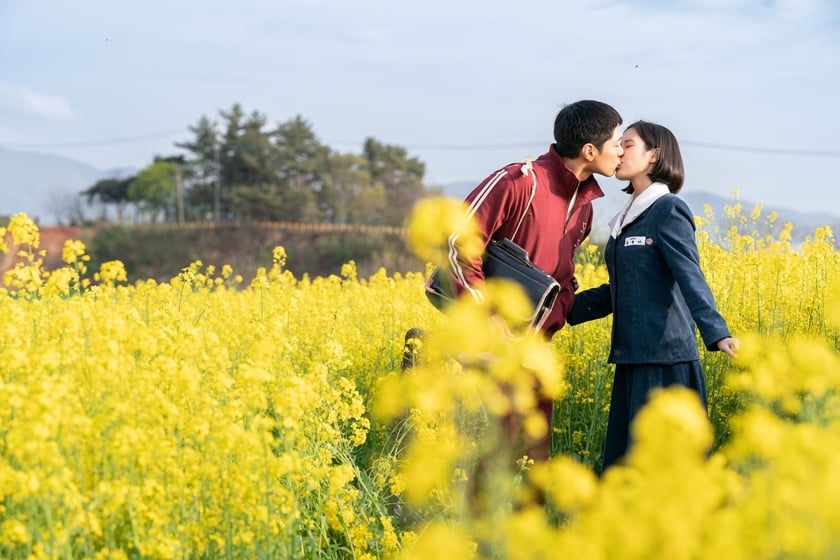
The scene shows the lead actors holding hands and strolling through a rapeseed field at the foot of Seongsan Mountain.
A love song on Jeju Island
Inspired by the famous saying "When life gives you lemons, make lemonade," the film "When Life Gives You Tangerines" offers viewers a love story that is both emotional and meaningful.
In that setting, Ae Sun (IU) appears like a radiant flower, embodying a spirit of freedom and intense ambition. Ae Sun is the embodiment of a generation of young women who dare to think, dare to act, and dare to fight to live true to themselves. In contrast to Ae Sun, Gwan Sik (Park Bo Gum) is a quiet, down-to-earth young man, embodying the characteristics of Jeju farmers. He possesses a warm heart and a sincere, passionate love for Ae Sun. Gwan Sik's love is not ostentatious or boisterous, but quiet and subtle, like waves gently lapping against the shore.
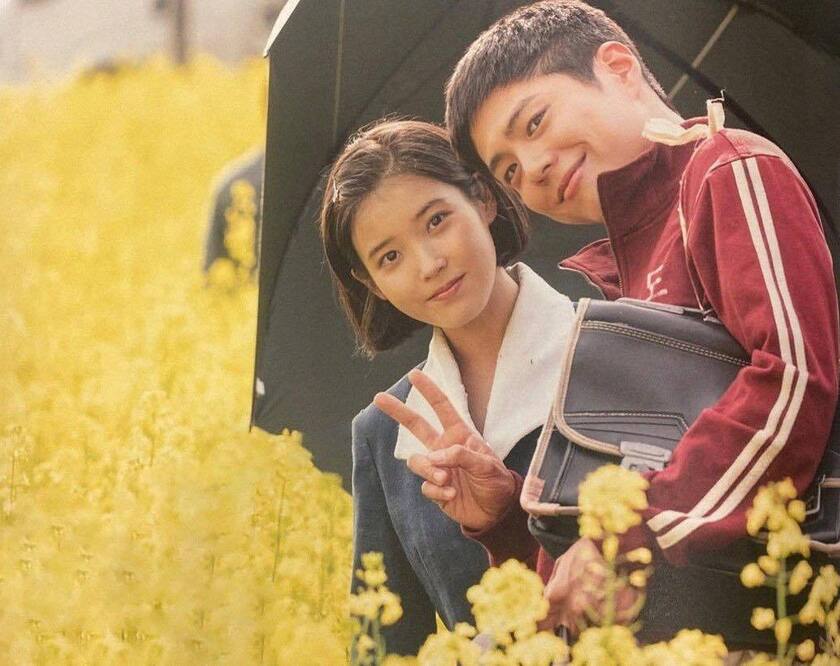
The film takes viewers back to Jeju Island in the old days, where the story of Ae Sun (IU) and Gwan Sik (Park Bo Gum) unfolds amidst the turbulent waves.
Despite their contrasting backgrounds and personalities, Ae Sun and Gwan Sik's love blossomed and grew over time, like a lush tangerine orchard on Jeju Island. Together, they experienced sweet and romantic moments, but also faced life's challenges and hardships. The questions surrounding their relationship created intrigue and drama, keeping viewers glued to their screens.
A "different" Jeju in the movie.
Far removed from the modern, vibrant, and lively image of Jeju we often see in travel films or glamorous advertising photos, "When Life Gives You Tangerines" takes viewers back to a harsh period in the island's history. The 1950s were a time when the sea was not only a precious source of livelihood but also a huge burden for its people. Their lives were intertwined with the sea, but they also faced the dangers and challenges it presented.
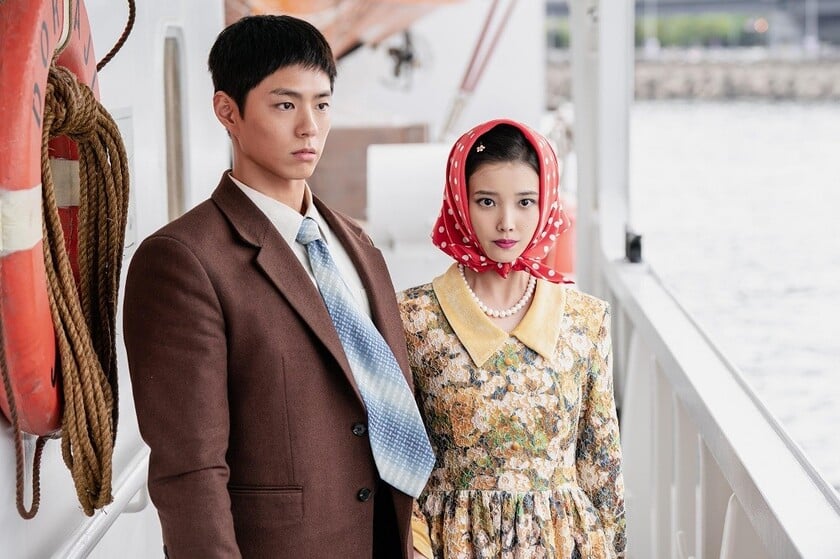
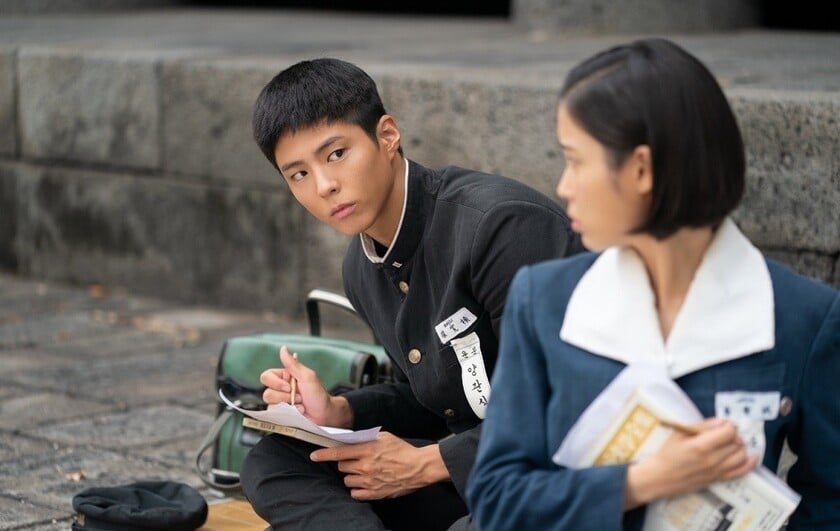
Far removed from the image of modern, vibrant, and lively Jeju, When Life Gives You Tangerines takes viewers back to a harsh period in the island's history.
Prominent in this picture of a life full of hardships is the image of the Haenyeo – resilient female divers, strong women who have become symbols of Jeju Island. They not only face fierce waves and unexpected storms, but also battle the harshness of life and the overwhelming difficulties of making a living.
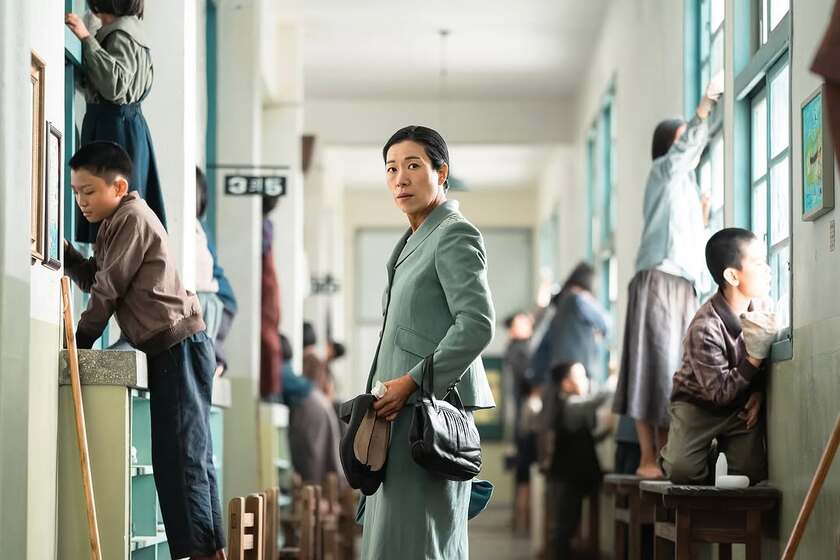
Her mother, Jeon Kwang Rye, was a seasoned Haenyeo, shouldering the entire family's burdens on her bare shoulders in the deep sea.
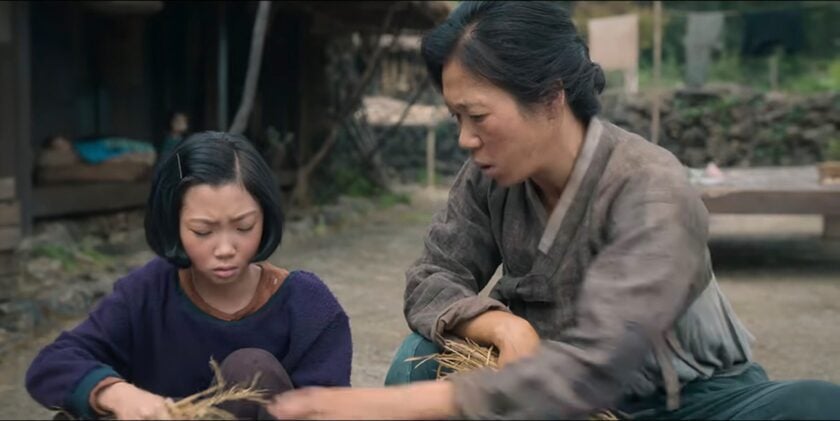
Ae Sun's mother, Jeon Kwang Rye, is a seasoned Haenyeo, a woman who has dedicated her life to the sea. She shouldered the burden of her family, diving deep into the ocean to earn a living. Kwang Rye understands the hardships and difficulties of the diving profession better than anyone, and therefore does not want her daughter to follow in her footsteps.
Therefore, she uttered a bitter remark: "It's better to be born a cow than a sea woman." This statement not only revealed her personal weariness and disillusionment, but also reflected the haunting suffering of many generations of Haenyeo women. They had to sacrifice their youth, health, and even their lives to make a living and support their families.
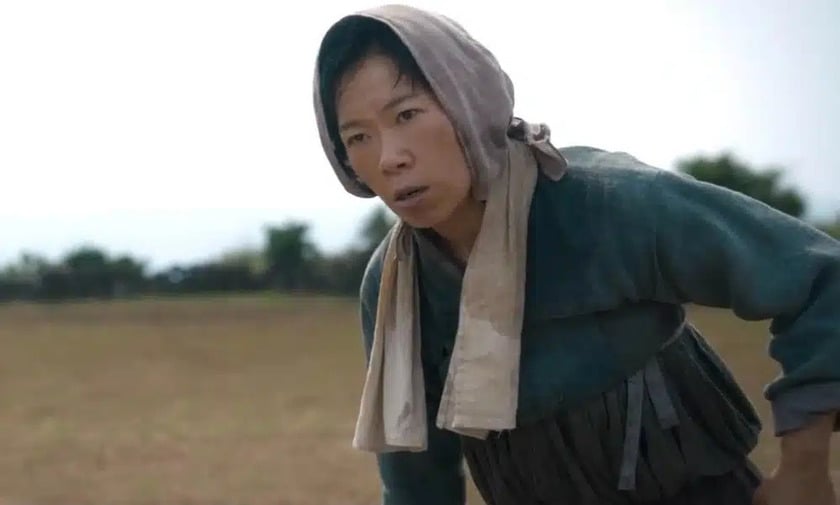
The arduous profession of a seawoman is celebrated in films.
The sea women profession, recognized by UNESCO as an intangible cultural heritage, is not so named because it is a beautiful, romantic occupation, but because it is a testament to the resilience, courage, and self-sacrifice of women. They are women who dare to risk everything to overcome difficulties and protect their loved ones. They are the unsung heroes of Jeju Island, who have contributed to the unique cultural identity of this island.
The scenes of Jeju Island in "When Life Gives You Tangerines" paint a multifaceted picture, both poetic and romantic, yet harsh and raw. The subtle use of warm, nostalgic tones, combined with slow, meticulous filming, perfectly recreates the nostalgic beauty of an old Jeju. It's a Jeju with pristine, deserted beaches, simple, rustic stone-roofed houses, and the diligent Haenyeo female divers who work day and night, diving deep into the sea to earn their living.
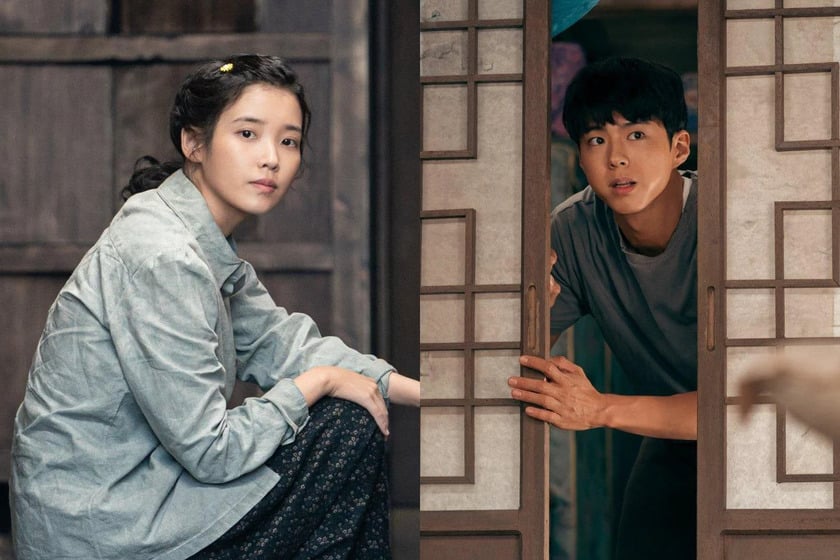
The film has a melancholic tone.
Every frame in the film is meticulously crafted, like an emotionally charged work of art, evoking distant memories and stories that have faded into the past. Viewers are not only captivated by the poetic beauty of the scenery but also moved by the arduous and difficult lives of the local people. This time-worn setting creates a unique artistic space, offering viewers unforgettable experiences.
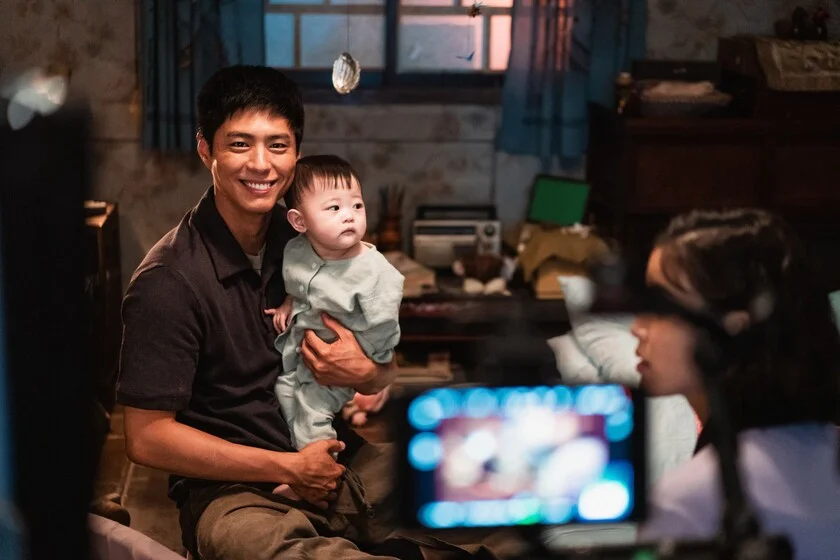
Each frame is meticulously crafted.
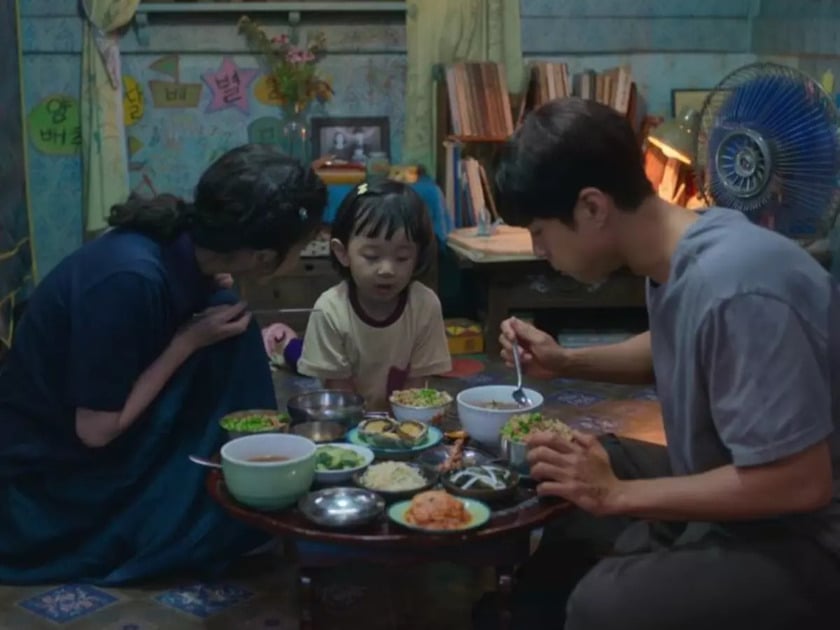
The somber film depicts a difficult period in Jeju's history.
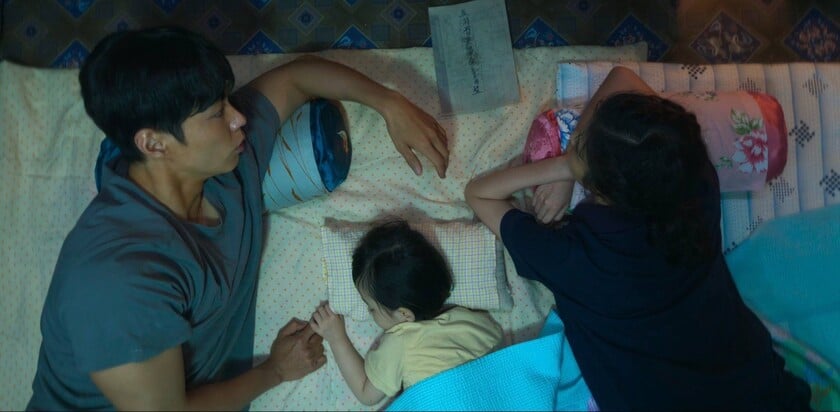
One of the most classic and beautiful scenes in the film is when the two main actors hold hands and stroll through a field of vibrant yellow rapeseed flowers at the foot of Mount Seongsan in the setting sun. Behind them stretches a long, azure beach, creating a romantic and emotional setting. In wide shots, viewers can admire the entire expanse of the dazzling yellow rapeseed flowers in spring (March-April) on Jeju Island, a breathtaking and captivating sight.
Beyond its majestic natural scenery, the film authentically portrays the daily life of the people of Jeju through everyday scenes. The bustling morning market, the small road leading down to the sea, the fishing boats anchored along the shore, and the traditional wooden houses with thatched roofs and stone fences—all contribute to a profound depiction of the simple, rustic life of the island's inhabitants.
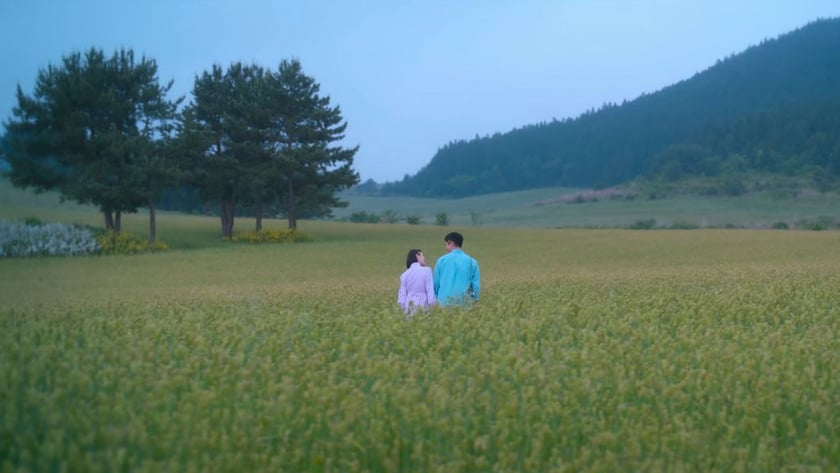
Jeju's famous tourist destinations are showcased on the small screen.
Jeju Island, the largest island in South Korea, has long been known as a "paradise island," an ideal destination for those seeking peace and romance. It's not only famous for its stunning natural landscapes, but also for being a familiar setting in many Korean romantic dramas, contributing to the island's special appeal.
Located approximately 100 km from the mainland, Jeju is completely isolated from the hustle and bustle of major cities. The island boasts a mild and pleasant climate year-round. Summers are not excessively hot, making them ideal for outdoor activities such as hiking, mountain climbing, or swimming. Autumn brings cool air, with trees turning yellow and red, creating a romantic and dreamy landscape. In winter, Jeju is covered in white snow, offering a magical and romantic beauty.
Compared to other islands in South Korea, Jeju has preserved its distinctive traditional culture, untouched by urbanization. The people here value community living and maintain close ties with one another. They still preserve and use the unique Jeju dialect, a distinctive cultural feature that has attracted the attention of many filmmakers.
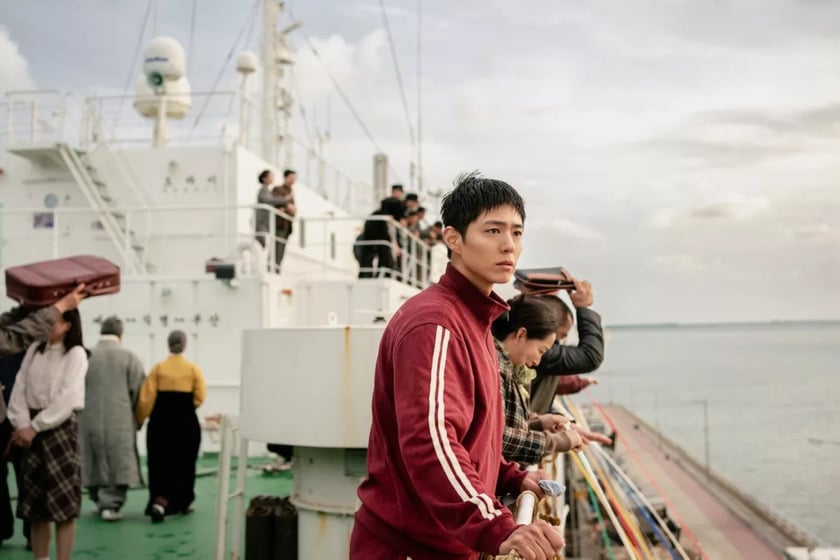
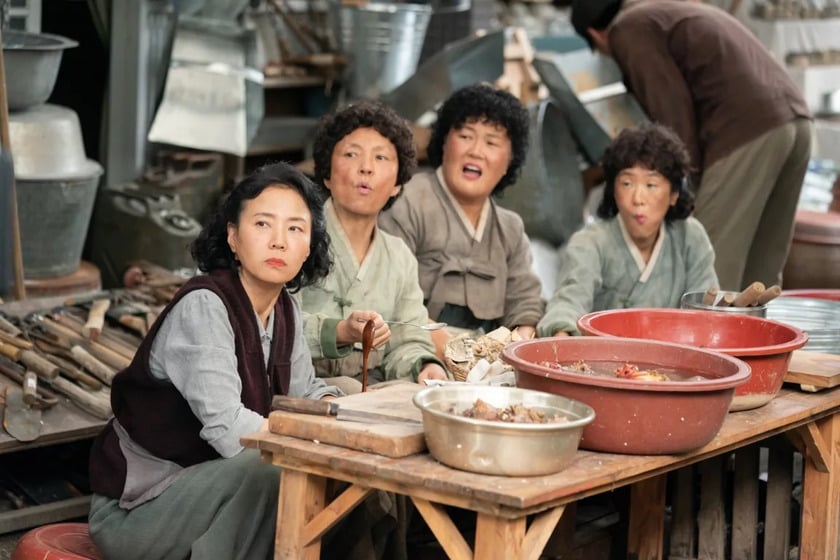

 VI
VI EN
EN



